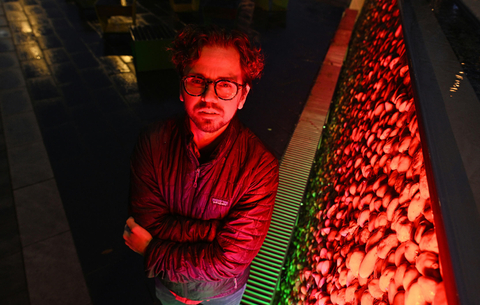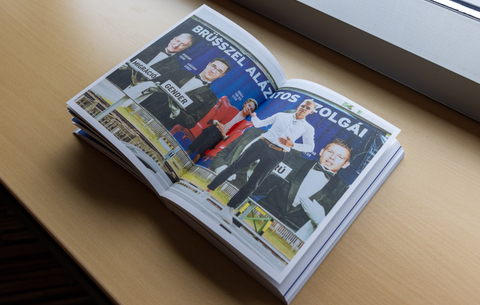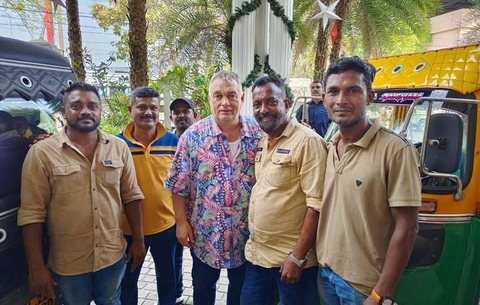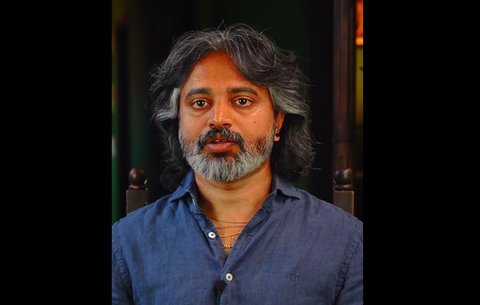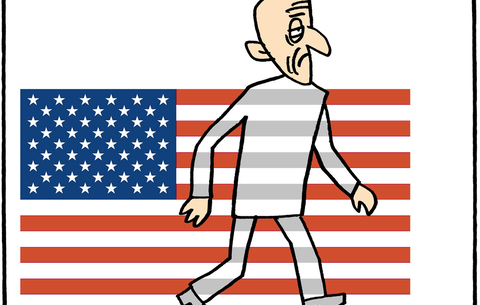Tickets, please!
Almost everyone has a story about the ticket inspectors: people who were ordered off the vehicle or allowed to pass, inspectors who were obstructive or sympathetic, who were difficult with foreigners, or who kindly gave directions. HVG.hu travelled with the inspectors, on the trams, on the bus and on the metro.
Just about everyone has travelled without a ticket at some point, whether by design or by accident. Even the ticket inspectors.
"I'm a poacher turned gamekeeper," said Laszlo Horvath, a senior inspector, who has the best performance figures of all Budapest Transport's (BKV) 409 ticket inspectors.
From the nine interviews we conducted with them, it is clear that nobody plans to become a ticket inspector. Peoples stories differ:
some were unable to find a new job after finishing their maternity leave, others came for a stint of a couple of months, and others thought it was one job they could still do as they neared their 50th birthday. Inspectors take a three-week course, during which recruits learn about the network and the tariffs and learn some psychology too.
"You can tell something about people from the way they behave," said Sandor Toth, head of the tariff revenue department at BKV. The company is even catering for tourists: since 2002, around 70 people have taken part in a 100-hour crash course in English.
"It's about who beats whom in a psychological sense," said Laszlo Horvath. "If someone pays the spot fine but the person next to them doesn't, then you have to be more determined: you have to maintain your prestige in front of the paying passenger." Inspectors say the weather is the major factor affecting people's likelihood of paying and their response if challeneged. If it's sunny, then everyone's in a better mood. At the beginning of the month, when people feel rich, people are not too worried about the inspectors. All agree that Roma passengers are less of a problem than teenagers. "Nobody can get under my skin," said Janos Meri, who in 13 years of service has caught 100,000 ticketless passengers.
"I'll board in front, you at the back, and you in the middle," said one inspector to his colleagues boarding the number 7 bus at Bosnyak ter. Surrounding people is the best tactic. Eva Horvath uses a sneakier approach with a student on the number 62 bus who last bought a season ticket in September. "I pretended to accept the ticket, and asked him for his student identity card. I took down the details and then told him his ticket was invalid," said the inspector. Laszlo Horvath likes to go incognito. He pretends to be a normal passenger and holds a ticket. Company rules help him, since inspectors do not need to wear a uniform.
On the metro, it's common to see a teenager walk straight past an inspector, who makes a half-hearted attempt to grab youngster by the arm and hold him back. This is a minor work-related risk. But plenty of inspectors have suffered broken noses. Mostly, however, inspectors have to get used to a range of choice invective. "We're people, too, and sometimes we just lose it and respond in kind," said Horvath of cases like the one where an inspector in the 13th district manhandled a homeless person off a bus to the accompaniment of a stream of expletives.
Inspectors are driven not only by the joy of catching people. The benefits are just as much of an incentive. Each "successful intervention" - that is, each fine paid - merits an HUF85 bonus for the inspector. This means inspectors are keenest on spot fines, since they can be certain of getting their bonus. But these happen rarely, maybe once or twice a week. Furthermore, BKV's employees have to meet annual performance objectives: everyone has to manage 360 successful interventions a year.
In consequence, the inspectors prefer busy routes, like the number 4-6 tram or the number 7 bus. The metro is best from this point of view. When we visited, five inspectors caught 16 passengers in 15 minutes.
There are other favourites: Horvath mentions the number 56 tram, because "the people are more civilised." But not everyone is so fortunate. They readily admit that some are "overenthusiastic," with the occasional inspector not above singling out foreigners for closer inspection.
Judit Wild
